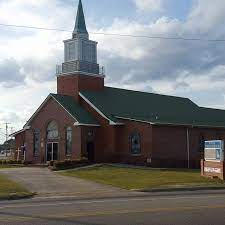In a property insurance claims dispute, the statute of limitations’ clock starts ticking on the date of the loss, not the date the insurance company allegedly breached the contract, a federal court has decided in a North Carolina assignment-of-benefits case.
In Skyline Restoration vs. Church Mutual Insurance Co., the U.S. 4th Circuit Court of Appeals found this week that a contractor that had done wind-damage repair work for the First Baptist Church had waited a few weeks too late to take legal action.
North Carolina law also does not recognize unfair and deceptive trade practices claims by third parties against insurers, the court held. The matter was also complicated by the fact that the church declared bankruptcy in 2018.
Neither the church nor its insurer has paid anything on the more than $75,000 in restoration work, the court noted.
The case began in 2016, when First Baptist Church of Lumberton, North Carolina, sustained wind damage from Hurricane Matthew. The church assigned benefits to Skyline Restoration to provide emergency repair work. Church Mutual, a 120-year-old carrier based in Wisconsin, with $1 billion in direct written premiums, partially denied the claim and the contractor sought relief.
The case hinged in part on dueling statutes of limitation: The storm hit in October 2016. Church Mutual denied the claim in November of that year. Skyline Restoration filed its lawsuit in November 2019, relying on a North Carolina statute that provides three years from the date of the contract breach, in which to take legal action.

But Church Mutual argued that another state law stipulates that on most property insurance policies, the statute of limitations runs for three years from the date of the loss. The federal district court agreed, meaning that the construction firm had missed the legal deadline by six weeks.
The lower court also found that First Baptist’s bankruptcy did not stop the clock, as Skyline had argued.
On the unfair trade practices argument, Skyline pointed out that Church Mutual never responded to its invoices and thus was guilty of violating state law that requires insurers to act in good faith to settle claims when liability is clear. The lower court did not buy that assertion.
The appeals court agreed with the district court on all points. It noted that First Baptist, not the contractor, was the only party that could bring an unfair trade practices claim. Allowing a third-party claim could create a conflict of interest for the insurance company, the court explained. Unfair trade claims also are not assignable under North Carolina law, meaning First Baptist could not assign such claims to Skyline.
“We affirm the district court’s dismissal of Skyline’s UDTPA claims,” wrote Roger Gregory, chief judge of the 4th Circuit appeals court. “Skyline cannot prevail on an independent UDTPA claim against Church Mutual because North Carolina does not recognize a cause of action for third-party claimants against the insurance company of an adverse party.”
Skyline was represented by attorneys David Coats and J.T. Crook in Raleigh, North Carolina. They could not be reached for comment Thursday. Church Mutual was represented by Miheala Cabuela, of Tampa, Florida, and Andrew Watson of Charlotte, North Carolina.
Topics Profit Loss Numbers
Was this article valuable?
Here are more articles you may enjoy.


 Former Ole Miss Standout Player Convicted in $194M Medicare, CHAMPVA Fraud
Former Ole Miss Standout Player Convicted in $194M Medicare, CHAMPVA Fraud  Allstate Doubles Q4 Net Income While Auto Underwriting Income Triples
Allstate Doubles Q4 Net Income While Auto Underwriting Income Triples  Chubb CEO Greenberg on Personal Insurance Affordability and Data Centers
Chubb CEO Greenberg on Personal Insurance Affordability and Data Centers  Trapped Tesla Driver’s 911 Call: ‘It’s on Fire. Help Please’
Trapped Tesla Driver’s 911 Call: ‘It’s on Fire. Help Please’ 

